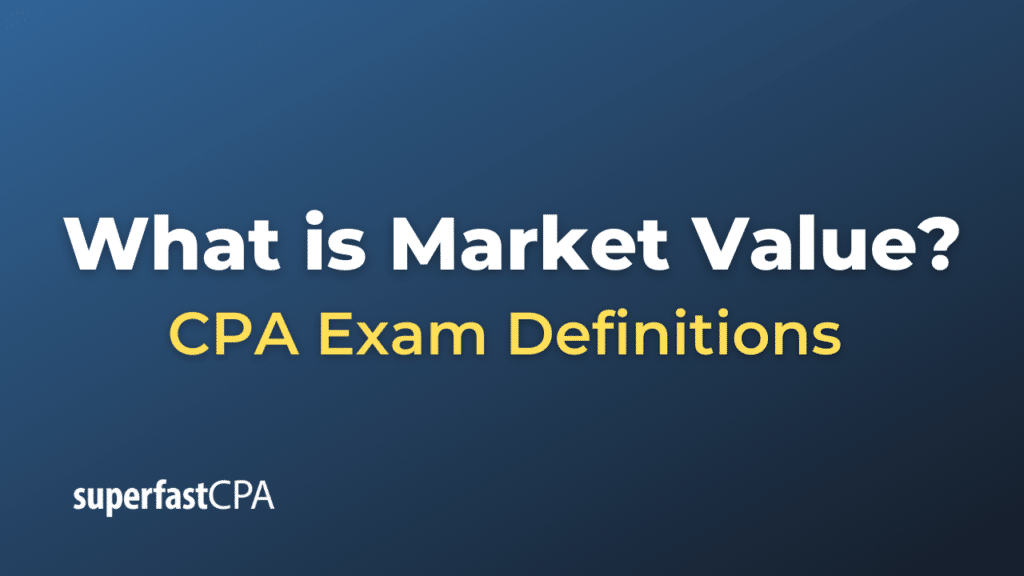Market Value
Market value, often called market capitalization in the context of publicly traded companies, refers to the total value of a company’s outstanding shares of stock at the current market price. It is calculated by multiplying the company’s current stock price by the total number of its outstanding shares.
For example, if a company has 10 million shares outstanding, and the current stock price is $20 per share, the company’s market value would be $200 million.
Market value is a key measure used by investors to size companies and compare their relative sizes within a particular market or industry. However, it is not a measure of a company’s intrinsic value, which is based on its earnings, growth prospects, assets, and other factors.
Market value can fluctuate frequently as a company’s stock price changes. Therefore, it may not reflect a company’s true value at all times, especially in volatile markets or in cases where a company’s stock is subject to speculative trading.
In a broader sense, the term “market value” can also refer to the price at which an asset (e.g., a house, a car, or a piece of art) would likely sell in the current market. This is often determined through appraisal, comparison with similar recently sold items, or through market-based pricing mechanisms.
Example of Market Value
let’s consider an example using a fictitious publicly traded company called TechCo.
Assume that TechCo has 50 million shares of stock outstanding. The current trading price of TechCo’s stock is $30 per share. To find the market value, or market capitalization, of TechCo, you would multiply the number of shares outstanding by the current stock price:
Market Value = Number of Shares Outstanding x Stock Price
TechCo’s Market Value = 50 million shares x $30/share = $1.5 billion
Therefore, based on the current stock price, TechCo’s market value or market capitalization is $1.5 billion.
Remember, this is a simplification and the market value of a company changes constantly throughout the trading day as its stock price fluctuates due to trading activity. It’s also important to note that while market value gives an idea of the company’s size, it doesn’t necessarily reflect its intrinsic value, which considers other factors like the company’s earnings, assets, liabilities, growth potential, and the economic conditions in its industry.













